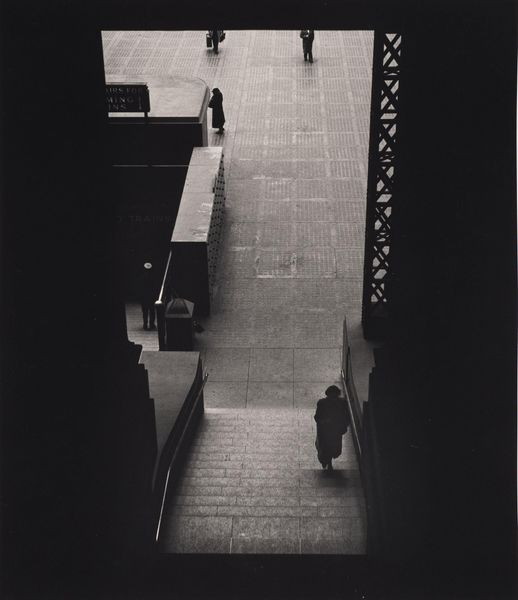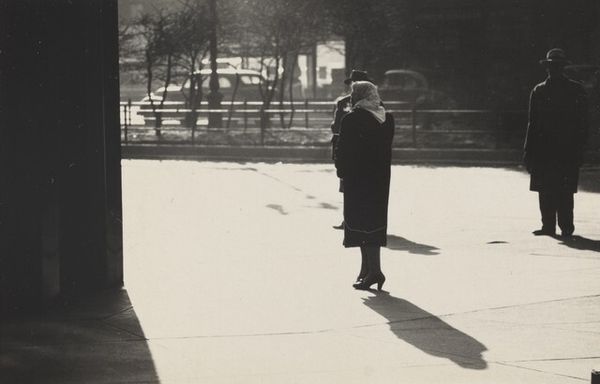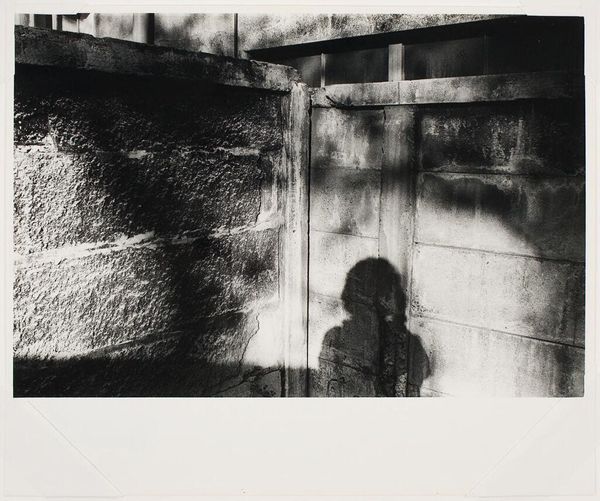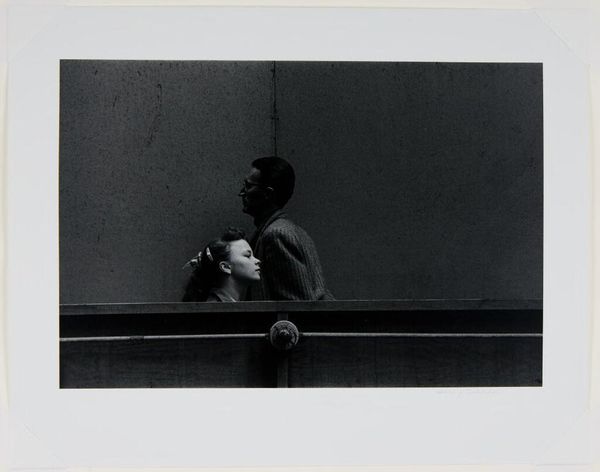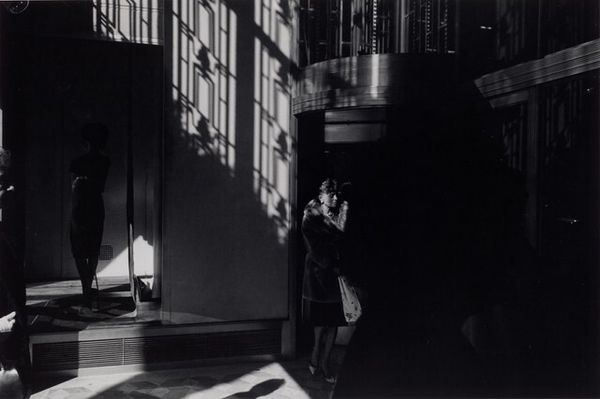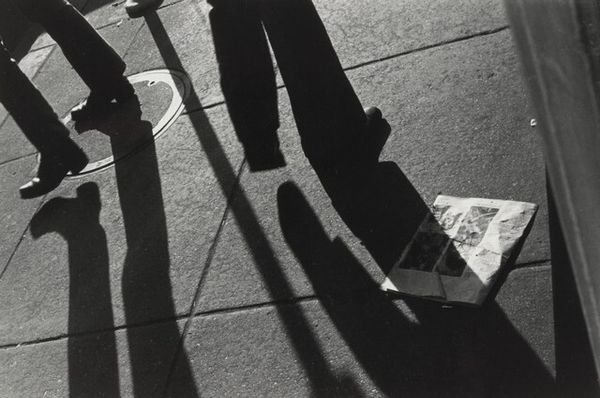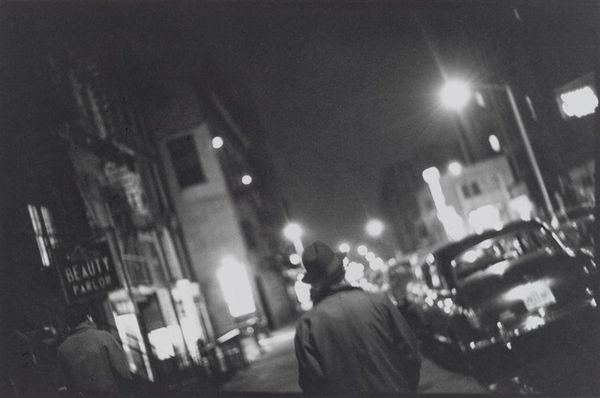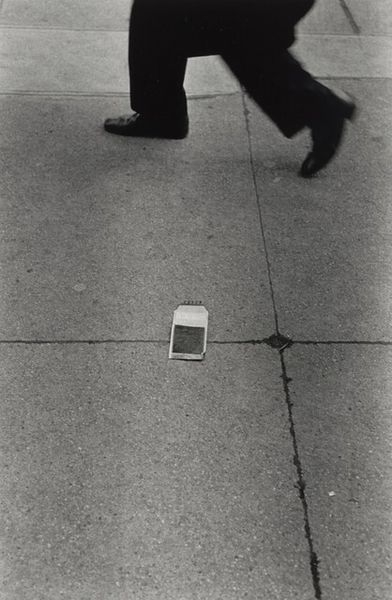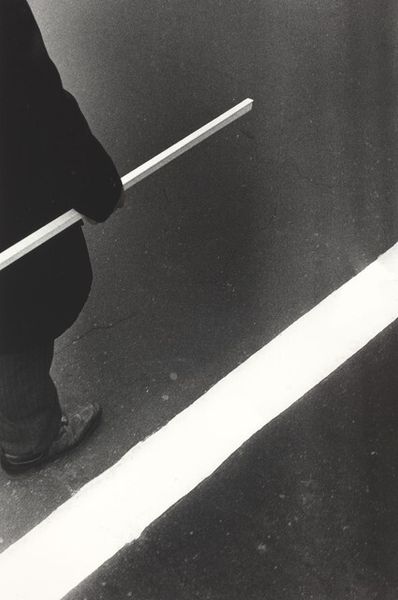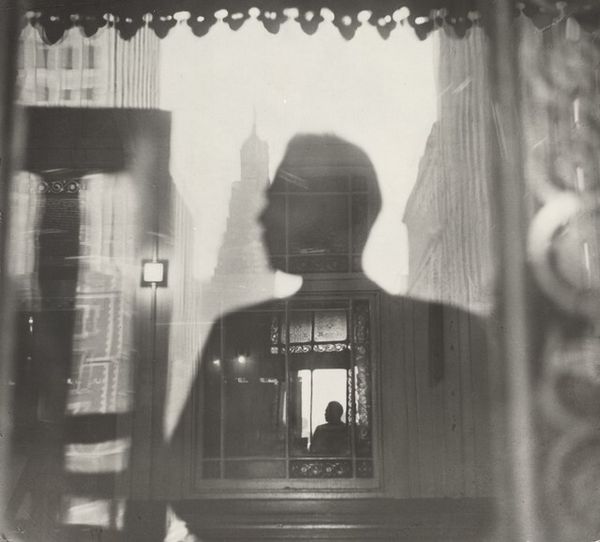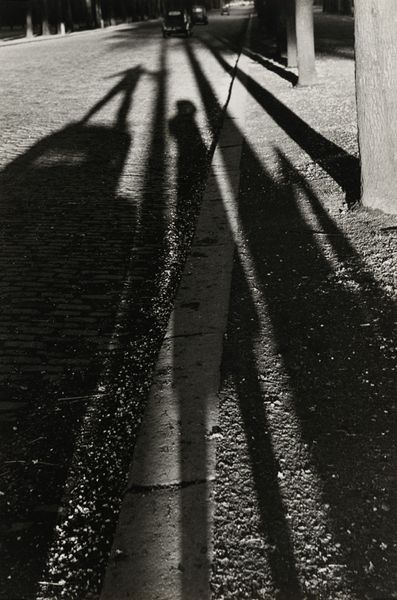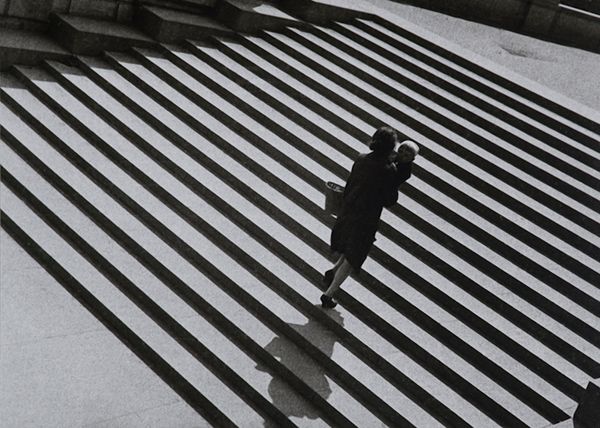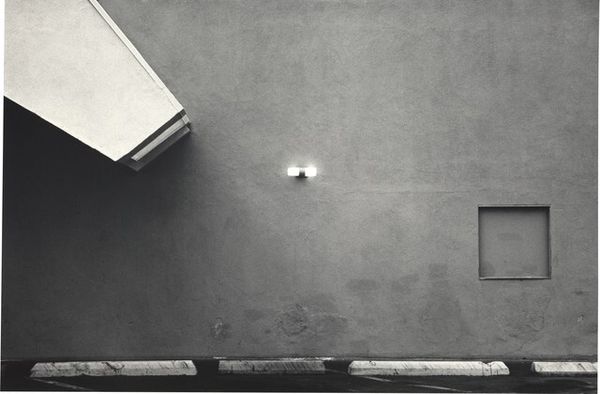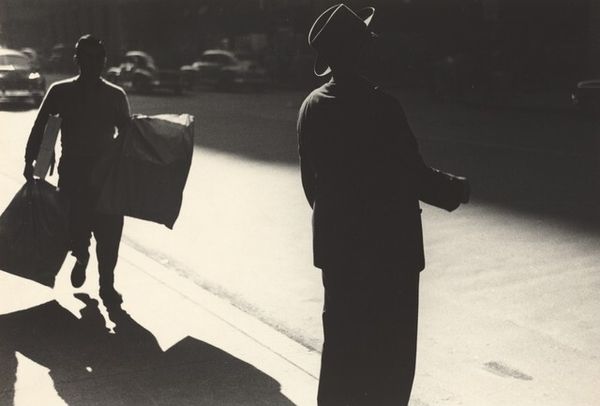
photography, gelatin-silver-print
#
street-photography
#
photography
#
gelatin-silver-print
#
cityscape
#
modernism
#
realism
Dimensions: image: 22.5 x 14.9 cm (8 7/8 x 5 7/8 in.) sheet: 25.3 x 20.1 cm (9 15/16 x 7 15/16 in.)
Copyright: National Gallery of Art: CC0 1.0
Curator: This intriguing gelatin silver print is titled *Philadelphia*, likely created sometime between 1964 and 1973 by Ray K. Metzker. What's your immediate take? Editor: Stark. It feels almost detached. The high contrast isolates the subject, that lone figure crossing the street. There’s an anonymity, a certain alienation typical of the urban experience, particularly I think regarding marginalized groups. Curator: That alienation is definitely part of the social fabric Metzker often captured. Philadelphia in those years, like many American cities, was experiencing significant social and economic shifts. The built environment itself – those imposing neoclassical structures in the background – speaks to power structures and institutions. How does the photograph itself reinforce that commentary? Editor: The car in the foreground disrupts the eye. Is this how a marginalized group perceives societal and structural pressures? The way forward is intentionally obscured, right? And note, too, the formal rigor - those hard geometries in the cityscape contrasted with the relative softness of the pedestrian. Even in supposed realism, Metzker emphasizes social control and order against the free individual. What I call photographic violence against that vulnerable figure. Curator: Absolutely. The geometric composition certainly sets a stage where human presence is minimized, controlled. There's an incredible tension between what we see - the ostensibly objective recording of a city scene - and what Metzker chooses to emphasize, in turn revealing an artist at odds with the political landscape of the time. This interplay speaks to debates happening within photography itself – questions of objectivity, authorial voice, and the potential for social critique. Editor: Precisely, and it reminds us that seemingly simple observations carry complex ideological weight. To consider Philadelphia— or any city— in that historical moment, as captured here, requires us to interrogate not just urban space but social spaces. Curator: Thank you, I agree. Metzker offers not just a snapshot of a city, but a compelling historical argument regarding identity within social spaces.
Comments
No comments
Be the first to comment and join the conversation on the ultimate creative platform.
